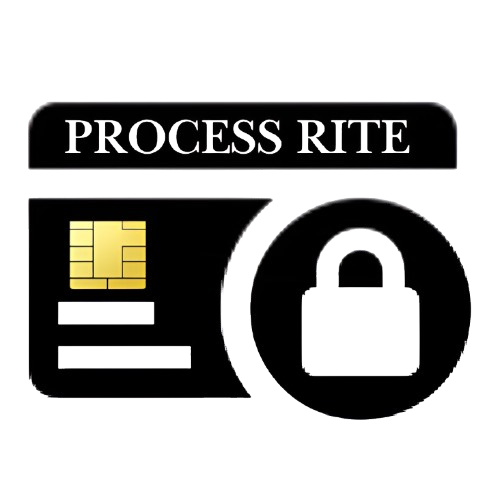Dissolving a business in New Jersey requires careful planning and compliance with state regulations to ensure a smooth and legal closure. Whether your business has outlived its usefulness, has financial difficulties, or you simply want to move on to other opportunities, following the correct procedure is crucial to avoid legal complications. In this guide, we’ll walk you through the steps necessary to dissolve a business in New Jersey properly.
1. Review Your Business Structure and Legal Obligations
The first step in dissolving a business is to understand your business structure, as different types of businesses have different dissolution procedures. For instance, a Limited Liability Company (LLC), corporation, or sole proprietorship each has its own steps to follow. Review any operating agreements, partnership agreements, or corporate bylaws that might outline how to dissolve your business. Be sure to also consider the financial implications, such as outstanding debts, employee severance, and taxes.
2. File a Certificate of Dissolution
For LLCs and corporations, the next step is filing a formal Certificate of Dissolution with the New Jersey Division of Revenue & Enterprise Services. This document notifies the state that your business is officially closing and serves to terminate your business’s legal existence in New Jersey. Make sure all required information is complete and accurate to avoid delays in the dissolution process. For corporations, you will file the “Certificate of Dissolution – Corporation” form, and for LLCs, you’ll file the “Certificate of Dissolution – Limited Liability Company” form.
3. Resolve Any Outstanding Debts and Obligations
Before closing your business in New Jersey, it’s essential to settle any outstanding debts or obligations. This includes paying off creditors, suppliers, and employees. If you have loans or lines of credit, you’ll need to work with your financial institutions to resolve those as well. Also, if your business has employees, be sure to follow proper termination procedures and provide any severance or benefits owed. Settling debts before dissolution helps avoid potential legal action against your business.
4. File Final Tax Returns and Clear Any Liabilities
Dissolving your business in New Jersey means you must also clear any remaining tax liabilities. This includes federal, state, and local taxes. You’ll need to file final tax returns for your business and ensure that all outstanding sales taxes, payroll taxes, and income taxes are paid. Be sure to mark your final tax returns as “final” to notify the IRS and the state tax department that your business has been dissolved. Also, cancel any business-related licenses or permits and notify the state of your closure.
5. Notify Creditors, Employees, and Stakeholders
When dissolving your business, it’s important to notify all relevant parties, including creditors, employees, and stakeholders. Provide proper written notice of your intent to dissolve the business and settle any outstanding financial obligations. This ensures transparency and allows creditors or employees to take necessary actions before the business is officially closed.
6. Distribute Remaining Assets
After settling all debts and obligations, any remaining assets of the business must be distributed. If your business is a corporation or LLC, the remaining assets are distributed according to the ownership percentage specified in the company’s operating agreement or bylaws. If no specific instructions are available, assets are typically divided among the owners or shareholders based on their share of the business. For sole proprietors, any remaining assets should be liquidated and distributed accordingly.
7. Close Business Accounts and Cancel Any Registrations
Once your business is dissolved and all assets are distributed, you need to close any business accounts. This includes bank accounts, credit accounts, and business lines of credit. Additionally, if your business has any registered trademarks, domain names, or intellectual property, you should cancel or transfer these as necessary. Be sure to remove your business from any relevant directories, cancel subscriptions, and close out any service agreements to avoid ongoing charges after the business is dissolved.
Frequently Asked Questions
- How long does it take to dissolve a business in NJ? The dissolution process can take several weeks, depending on the complexity of your business. Filing the Certificate of Dissolution with the state typically takes a few days to a few weeks to process, but clearing debts, settling taxes, and distributing assets may take longer.
- Do I need an attorney to dissolve my business? While it’s not strictly required, it’s highly recommended to consult with a business attorney to ensure that all legal requirements are met. An attorney can help with paperwork, creditor negotiations, and tax matters to avoid future issues.
- Can I dissolve my business if it has unpaid debts? Yes, you can still dissolve your business with unpaid debts, but you must settle these debts before completing the dissolution process. If there are significant financial obligations, you may need to negotiate with creditors or file for bankruptcy.
- What happens if I don’t dissolve my business properly in NJ? Failure to properly dissolve your business can lead to ongoing tax obligations, penalties, or legal issues. Your business may still be considered active by the state, and you may be liable for taxes, fees, or debts even after ceasing operations.
- Do I need to notify the IRS when dissolving my business? Yes, you are required to notify the IRS and file a final tax return for your business. This ensures that your business’s tax obligations are cleared and that the IRS knows you have officially closed the business.
- Can I reopen a dissolved business? Once a business is dissolved, it generally cannot be reopened unless you go through the legal process of reestablishing it. You would need to register a new business and follow all the appropriate procedures for starting a new company.
Dissolving a business in New Jersey involves several important steps to ensure that you’re complying with state and federal regulations. By following this guide, you can properly close your business, settle all obligations, and avoid future legal or financial complications.

